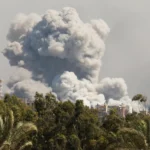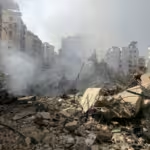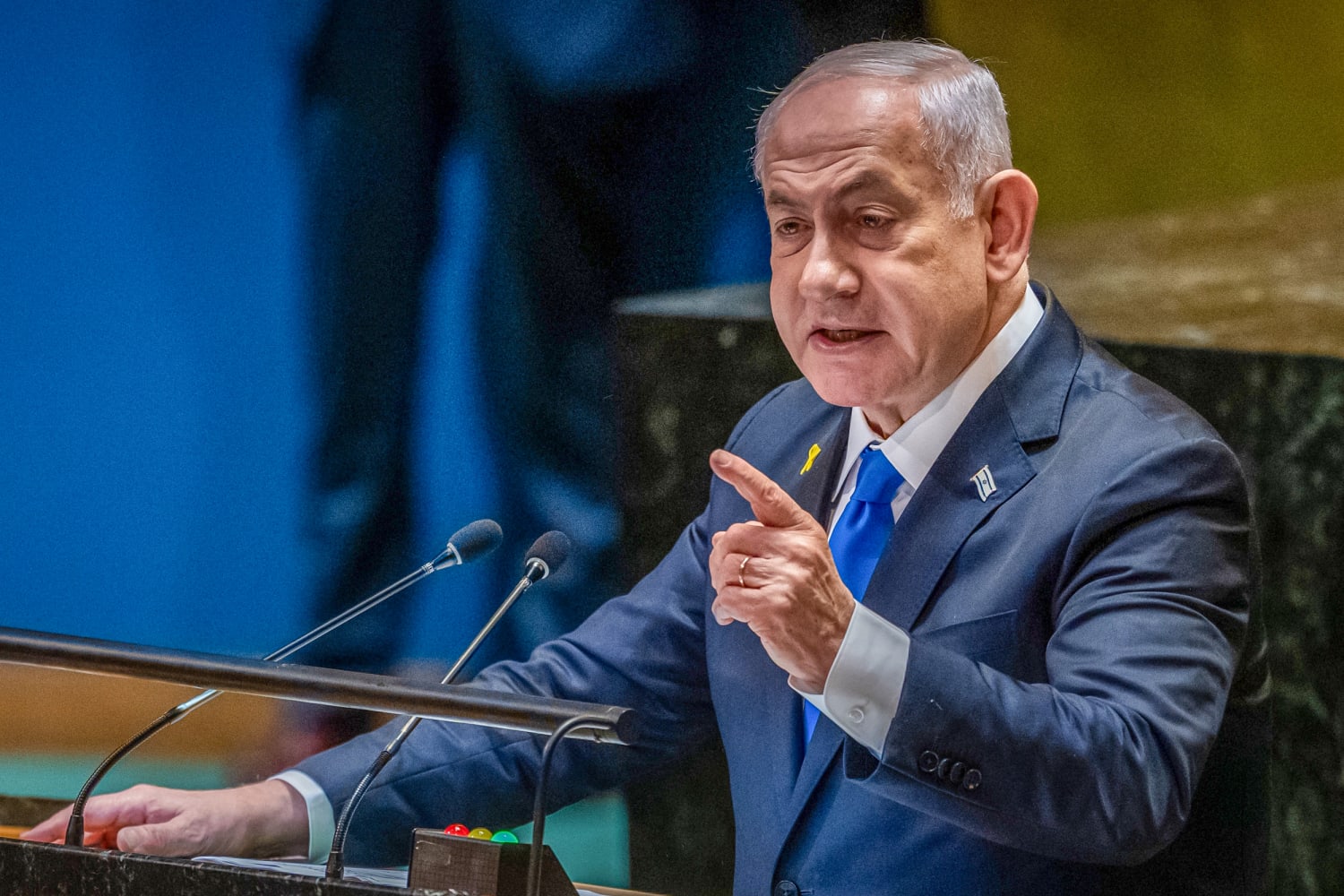Scores of diplomats streamed out of Israeli Prime Minister Benjamin Netanyahu’s speech at the United Nations General Assembly on Friday to protest the war in Gaza and recent airstrikes in Lebanon. Several diplomats exited hastily when Netanyahu entered the hall, prompting the presiding official’s call for “order, please” as the Israeli leader prepared to speak.
“Israel has every right to eliminate this threat and bring our citizens home safely,” Netanyahu said, referring to the Hamas attacks. “We won’t rest until all hostages are back home,” he emphasised.
Netanyahu was full of stern warnings, though, primarily aimed at Iran. “I have a message to the tyrants of Tehran: if you strike us, we’ll strike you,” he said. “There is no place in Iran that the long arm of Israel cannot reach, and that’s true for the entire Middle East.”
The war in Gaza is going to be completed in one year, leaving the whole region in rubble. More than 42,000 people lost their lives, nearly the population was uprooted at least once from their homes, and entire neighbourhoods, schools, and hospitals in northern Gaza were destroyed by Israeli airstrikes and tank fire, all but on the verge of famine.
Israel has continued its military campaign even during the destruction caused by the war. This week, it carried out intensified bombing of Lebanon. Over a week, more than 700 people have been killed, with scores of women and children among them. Still visibly frustrated by the walkout at his speech, Netanyahu defended the military action taken by Israel in response to the Hamas-led attacks on southern Israel on October 7 and the last day’s strikes on Lebanon.
Tensions between Israel and Iran heightened in the last few months, especially after the Israeli attack on Iran’s embassy in Damascus and the assassination of Hamas political leader Ismail Haniyeh in Tehran. Iranian officials threatened to retaliate at a convenient time and place, which triggered further tension that could lead to clashes.
Throughout the week, world leaders, including US President Joe Biden, have been calling for an end to the war to urge a ceasefire. However, Netanyahu dismissed the possibility of putting military operations on hold, reassuring saying that Israel was going to continue hitting Hezbollah in Lebanon “with all our might.” He said: “We are at war with Hezbollah. Until they choose the way of war, there is no choice” but for Israel.
Only hours after Netanyahu’s speech, Israeli fighter jets bombarded the southern suburb of Beirut with airstrikes, targeting Hezbollah headquarters, as described by the Israeli army. The attack caused severe destruction, flattening several buildings, this time residential ones. Israeli media reported that the intended target was the leader of Hezbollah, Hassan Nasrallah, but sources from Iran insisted on saying Nasrallah was in a “safe place,” denying this claim.
The UN General Assembly has always been dominated by the issues of Israel’s ongoing military campaigns in Gaza and Lebanon. Palestinian Authority President Mahmoud Abbas blamed the killing of Palestinian children as a catalyst for putting an end to the bloodshed. “Stop killing children and women. Stop the genocide,” Abbas appealed before delivering his speech on Thursday.















